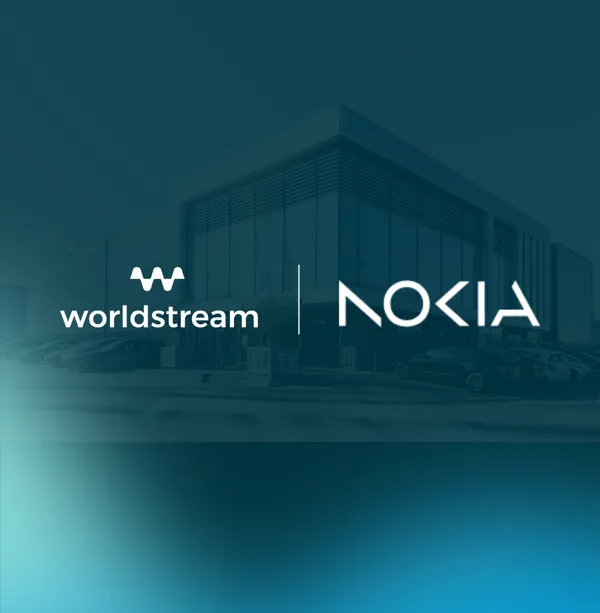Private Cloud, Is it Right for Your Business?

Knowledge blog

As an organization, you might prefer to keep your business-critical applications and accompanying data on-premises or deployed in known data centers of a trusted IaaS company close by rather than entrusting them to a large-scale public cloud provider. To leverage the high scalability and flexibility benefits of the cloud while simultaneously safeguarding ultimate security and compliance requirements as well as cost-effectiveness, private cloud could be a fitting solution for your IT infrastructure.
Should Your IT Organization Opt for Private Cloud?
If you want to reap the benefits from the cloud but don’t want to have your IT infrastructure deployed on shared resources, a private cloud can be the way to go. The name in fact says it all. A private cloud brings you a truly ‘private’ environment. It is not shared, you’re its sole user. A private cloud can run on a service provider’s server equipment, as also offered by Worldstream, or on-premises if a proper on-site server room is available.
Some people might think that the term ‘private cloud’ indicates that the hardware used for it has to be retained on-site, to keep things really private. If there’s a professionally equipped server room on-site available, this might indeed be a suitable option for some, mostly enterprises probably as it requires high investments and knowledge to operate a professional data center environment yourself. In many cases nowadays however, data center resources including private cloud infrastructure are hosted off-site by third-party Infrastructure-as-a-Service (IaaS) providers like Worldstream.
On-Premises or 3rd Party Hosted
It’s not about exactly where the server hardware is kept, or who’s in charge of the infrastructural operations which makes a cloud solution truly ‘private.’ It’s what kept on these servers and how the cloud environment is set up what makes it ‘private cloud infrastructure.’
Establishing private cloud infrastructure from the start can be quite a challenge for an IT department of an enterprise organization let alone an SMB. When private cloud is hosted on-premises, as a company, you’ll have full responsibility for the data center or server room, the physical servers, the web server software, the database software, as well as the middleware supporting your private cloud environment. Keeping a private cloud infrastructure solution on-premises might give you the impression that your private cloud is truly private. It could make you feel that you have full control over all aspects of hosting, including the server hard- and software as well as the security of the hosted applications.
In truth, operating on-premises servers including private cloud software may take a lot of engineering work. The underlying infrastructure of on-premises private cloud will have to be maintained on a continuous basis, which of course also requires highly specific in-house engineering knowledge and skills. In addition, keeping things on-premises does not provide ultimate security and uptime guarantees per se. The security of a private cloud is also determined by an organization’s supplementary security measures for reducing risks and security breaches.
Public Cloud Instead, Are You Sure?
Now and then we hear about companies going all-in on public cloud. It can provide these organizations with flexibility, standardization, and a huge amount of next-generation functionality. Indeed, going all-in on public cloud can be interesting for startups, scaleups, or enterprise organizations with truly global operations, but it also depends on the type of workloads you’re dealing with. But, despite its truly many advantages, public cloud offerings by providers such as Microsoft Azure, Amazon Web Services (AWS) and Google Cloud Platform (GCP) also have their restrictions. While the public cloud is a feasible and cost-effective choice for elastic workloads with highly variable or unexpected demand, in quite some cases it can become a very expensive option to choose.
In addition to getting access to extensive functionality, saving money is one of the primary motivators for organizations to adopt public cloud infrastructure. This holds true for scale-ups and startups in particular. However, when an organization really scales up and cloud expenditures are increasing accordingly, public cloud is not a viable match for quite some organizations. As an add-on for certain workloads within a hybrid cloud setup, yes of course, but not so much when it comes to an all-encompassing infrastructural strategy to host business applications organization-wide. Private cloud in many cases can be a much more lucrative option from a cost perspective.
The simplicity with which new servers and services can be launched is one of the factors contributing to high cloud expenses when going all-in on public cloud. As a result, shadow IT may grow out of control. Costs can become unpredictable by nature in the public cloud. A private cloud is pretty much always significantly more economical when being used at a given scale.
With unpredictable costs in mind, we rolled out our own public cloud solution. With our public cloud offering, WS Cloud, you can quickly and easily roll out virtual servers, as well as clone them, enable or disable them, and upgrade or downgrade them. The general upside of WS Cloud is a reduced time-to-market. Another upside is that at the end of the month you pay a fixed price per month.
We regularly provide clients with a calculation of the costs to deploy a private cloud within Worldstream’s data centers, as an alternative to hosting their applications in a public cloud environment. Many clients with extensive workloads are not aware of the cost disparity between a private cloud and a public cloud. The expenditure gap can turn out to be quite significant for workloads of a certain volume. For those who also want us to provide a cost estimate that compares public cloud with private cloud, feel free to drop our staff an email here, no obligations whatsoever.
OPEX-based Private Cloud
The technical expertise and skills necessary to create and manage private cloud infrastructure, as described earlier in this article, is something that may deter businesses from establishing a private cloud environment. Additionally, opting for private cloud might be difficult due to the high upfront investments to be made in private cloud technologies including architecture, hardware, and software. In that sense, public cloud can be a far more accessible option to host your IT infrastructure. As an organization, you can quickly join and obtain a lot of value for your money without making any pre-investments. In other words, public cloud can be accounted for as an operational expenditure (OPEX), which from a cost perspective makes this cloud infrastructure easy to start with and flexible to use as a foundation for IT services deployment.
In developing and offering infrastructural IT services for its global clientele, Worldstream has acknowledged this as a market issue that requires a tangible solution. Many customers do consider private cloud over public cloud and dedicated servers as a serious option. They may envision it as a full alternative to public cloud and/or dedicated servers or, for example, as a component in a hybrid mix of infrastructure solutions. To facilitate the move to private cloud for organizations, Worldstream’s engineering team has developed this VMware powered private cloud solution as part of our broader as-a-service IaaS portfolio. It’s delivered as an extension of our in-house developed software-defined network with global edge reach, Worldstream Elastic Network. The underlying physical network backbone with low-latency connectivity contributes to the robustness of this private cloud offering.
The beauty of a private cloud offering like this is that the high upfront investment (CAPEX) for customers is being eliminated. This private cloud is delivered ‘as-a-service.’ As an IaaS provider, we have done all the investments in architecture, hardware, and software. Customers can utilize it instantly, without any pre-investments or lead times to get started. It is SDN/NFV powered technology. Although it is software-based, it is still directly connected to the underlying server- and network hardware, adding to the IT infrastructure control private cloud (and dedicated server) users are looking for. In addition, through this offering, the expertise required to manage private cloud technology is far more limited compared to private cloud infrastructure that must be developed and deployed from the ground up.
Be aware, it is not fully managed private cloud infrastructure which Worldstream is offering. It’s aimed at tech-savvy users. That’s why this private cloud infrastructure is in great demand by systems integrators (SIs), independent software providers (ISVs), managed service providers (MSPs), and other companies with deep tech knowledge who intend to deploy private cloud cost-effectively or want to integrate it cost-efficiently into a broader portfolio of services.
Application Performance
Apart from the cost level, the desired performance of compute, network and storage infrastructure can also be a reason to opt for private cloud. We often hear from customers that the speed of compute, network and storage with public cloud providers leaves much to be desired, especially when it comes to I/O-intensive workloads. Maybe we shouldn’t expect anything else either. When applications run in a public cloud, the underlying physical resources are shared while this is not the case with private cloud. Private cloud is single-tenant in nature, also when it comes to software-defined IT infrastructure as delivered by Worldstream. With private cloud it follows that stronger performance assurances can be made, typically better than with public cloud.
With public cloud, it’s hard to provide the highest performance levels, also due to vast distances of public cloud data center locations and the available bandwidth. For the best compute, network and storage performance, nearby data center locations or unique and client-adapted network infrastructures might be required. Through the SDN/NFV technology on which Worldstream’s private cloud offering is based, backed by the underlying global network backbone, Worldstream is able to deliver private cloud to any data center worldwide where the network backbone has its presence. This enables customers globally to gain low-latency access to this innovative private cloud offering.
In contrast with public cloud infrastructure, the private cloud’s ability to be customized down to the smallest details of the infrastructure allows organizations to aim for the highest compute, network and storage infrastructure performance levels and adhere to rigorous performance requirements. As a sort of cross-pollination between the benefits of dedicated servers and public cloud, a private cloud configuration ultimately reduces the likelihood of outages, downtime, and latency, while offering a high level of stability and business continuity.
Aiming for the Highest Security Level
For many organizations including startups, scaleups, and application owners with highly fluctuating workloads, multi-tenant public cloud services will probably meet their security needs. The ability to handle sensitive data in a data center of choice and inside your firewall on the other hand makes private cloud security superior to the security of public cloud. Within reach of your engineers and/or the engineers of your service provider, a private cloud environment can be better managed and controlled whereas the security of a public cloud provider is largely beyond one’s control.
Bringing forward the security risk aspect of public cloud certainly is not a plea to disregard public cloud in favor of private cloud. Public cloud sure has its own advantages and is therefore widely used within the hybrid mix of IT infrastructural resources. That’s also the reason why Worldstream has added cloud on-ramps to its portfolio of IaaS solutions, with direct and low-latency access to popular hyperscalers such as AWS, Google Cloud Platform and Microsoft Azure.
Then again, public cloud is known for suffering from data breaches from time to time. This is something you might have to be aware of when opting for public cloud. In August 2021, thousands of Microsoft Azure accounts and databases were being exposed. During 2021, hackers were abusing the infrastructure of the Google Cloud Platform (GCP) to install ransomware and launch phishing campaigns, while driving traffic to YouTube videos for view count manipulation. And in May 2022, a security firm identified more than 6.5 terabytes of exposed data on AWS cloud servers belonging to a well-known airline. When choosing public cloud, you have to take incidents like these into account while asking yourself: does the risk of incidental public cloud data breaches fit my organizations’ desired security levels?
If the answer is yes, public cloud should be fine to use from a security perspective. If the answer is no, maybe you should consider using private cloud or perhaps dedicated servers instead. The distinguishing feature of private cloud is its commitment to a single user with isolated access – as opposed to the previously described multi-tenant characteristic of public cloud. Like public cloud, private cloud delivers flexible and scalable compute power but – if properly executed – it can provide its users with supreme privacy instead.
Meeting Compliance Requirements
Customers of private clouds are not compelled to rely on the regulatory and industry compliance provided by the cloud service provider. This can be an advantage for companies dealing with a variety of strict data privacy laws and regulations. When using public cloud, organizations might risk non-compliance with various national or international data privacy laws, or business-specific legal and regulatory requirements. You may think of the European Union (EU) Data Protection Directive, the Payment Card Industry Data Security Standard (PCI DSS), the Sarbanes-Oxley Act (SOX), or Health Insurance Portability and Accountability Act (HIPAA).
The EU General Data Protection Regulation (GDPR) is currently one of the key EU regulatory frameworks. It imposes stringent restrictions on any entity conducting business in Europe or maintaining and storing data about EU citizens. As fines for non-compliance can be substantial, choosing the right cloud environment with custom compliance options can make all the difference.
Of course, all major public cloud providers by now have developed policies to automatically monitor security and compliance throughout their cloud systems. That’s certainly progress. Typically, native tools are used for this, such as Google Security Command Center, Azure Policies, and AWS Config. As quite some organizations are using multiple public cloud environments to host their IT infrastructure, managing data compliance within such a multi-cloud environment can still make it quite complex though. Multi-cloud data compliance necessitates a thorough comprehension of how one provider interacts with the other(s).
Besides that, it remains difficult to pinpoint the exact data center location within a public cloud environment where all organizational data is stored and processed, and whether this is done for every operation and all data. Every now and then, reports emerge of specific portions of data that turn out to be processed non-compliantly after all. For some organizations, being exposed to such data risks can be devastating. When using a single private cloud for privacy-sensitive data, compliance is rather simple and straightforward to establish.
Deploying Legacy Applications
Having legacy systems present in an organization can also be a good reason to go for private cloud. A legacy system is an outdated software application or system that is still in use by the organization because it still fulfills the purposes for which it was designed. Sometimes organizations choose to keep legacy software outside public cloud because it can’t yet be migrated to such a cloud environment. It could involve a difficult-to-migrate application that is integrated into every business activity. This might for example be a self-developed program, a financial system, ERP software, or a CRM application, to name a few.
Legacy software systems typically no longer receive support or maintenance, and their capacity for expansion is constrained. Within a company, legacy software systems are frequently quite crucial for business operations, and they usually cannot be quickly replaced.
When deployed in a public cloud environment, these legacy applications may encounter serious issues as a result of deteriorated performance. Also called application refactoring, rewriting legacy applications might solve any issues with outdated characteristics, but it can be quite expensive to rewrite infrequently used applications to facilitate migration of such a legacy application to a public cloud environment.
By transferring legacy applications to a private cloud environment instead, organizations will likely gain from the scalability of cloud while preserving the ability to keep their outdated configurations.
Private Cloud vs WS Cloud
We must be honest, private cloud infrastructure is providing a plethora of benefits, with many of the advantages of dedicated servers and public cloud being combined, but it may also have its drawbacks. The following are some of the drawbacks you may think of when considering private cloud infrastructure deployment.
In general terms, private cloud can be a bit more expensive to start with. This is true at least for private cloud infrastructure that must be developed and installed from the ground up. Public cloud can be used instantly by organizations, while – generally speaking, the deployment of private cloud has some lead time and requires some pre-investment. With public cloud, organizations can step in quickly at an operational monthly cost, with the infrastructure moving along flexibly with the (unexpected) fluctuating infrastructural needs.
Private cloud infrastructure can usually come with high maintenance costs as well. A private cloud environment requires ongoing maintenance, which in addition to the initial hardware and software expenditure can be time-consuming in terms of engineering hours. Normally, it may even make sense to specifically hire people to manage and maintain a private cloud, something that further increases its costs.
Because Worldstream has uniquely developed an SDN/FNV powered private cloud solution that can be used by customers worldwide, private cloud can be purchased in the same low-threshold and flexible manner as public cloud. Without upfront investments and at the same transparent monthly costs. Although Worldstream delivers its private cloud offerings ‘unmanaged,’ the technical setup and maintenance is done by Worldstream and so it is easy to step in for both large and small companies.
While it might be easy to step into the private cloud sphere for organizations with a private cloud solution from Worldstream, not every company needs a fully private environment. As stated earlier in this article; it’s what kept on these servers. If you have applications that isn’t handling sensitive data, you’ll be better off choosing WS Cloud, giving you a smaller timeframe to start marketing your as-a-service for example.
About Worldstream’s Cloud Offerings
Backed by its proprietary global backbone, Worldstream offers a solid Infrastructure-as-a-Service (IaaS) solutions portfolio to clients globally, which includes several cloud-based solutions: private cloud and public cloud (WS Cloud), block storage, and object storage.
We have more than 15 years of experience with data centers, servers, and network management. The result is more than 15,000 dedicated servers distributed across our two data centers through our sister company Greenhouse Datacenters. Worldstream also uses sites in Frankfurt and Amsterdam. High-quality, flexible, and affordable IT infrastructure. Underscored by our very high Net Promoter Score of 74 (NPS/US) and a satisfaction rating of no less than 9.6.
Want to learn how you can transform your IT infrastructure to the cloud? Schedule a no-obligation brainstorming session with an account manager by mailing us here.
You might also like:
- How to deliver any IT functionality As-a-Service.
- The difference between Bare Metal Cloud and Dedicated Servers.
- What are your options against a growing number of DDoS attacks?
Have a question for the editor of this article? You can reach us here.

Latest blogs
CPU Steal Time on a VPS: How to Spot Contention and Decide on Dedicated
Knowledge blog

The Ultimate Gaming Latency Guide: How to Eliminate Lag and Maximize FPS
Knowledge blog

Growing smarter with less maintenance

Knowledge blog

Worldstream and Nokia Join Forces for Next-Gen DDoS Protection

News

Worldstream unveils new positioning and offers customers more control over their digital infrastructure

News

5th Gen AMD EPYC 9355P – Now Live at Worldstream

News
